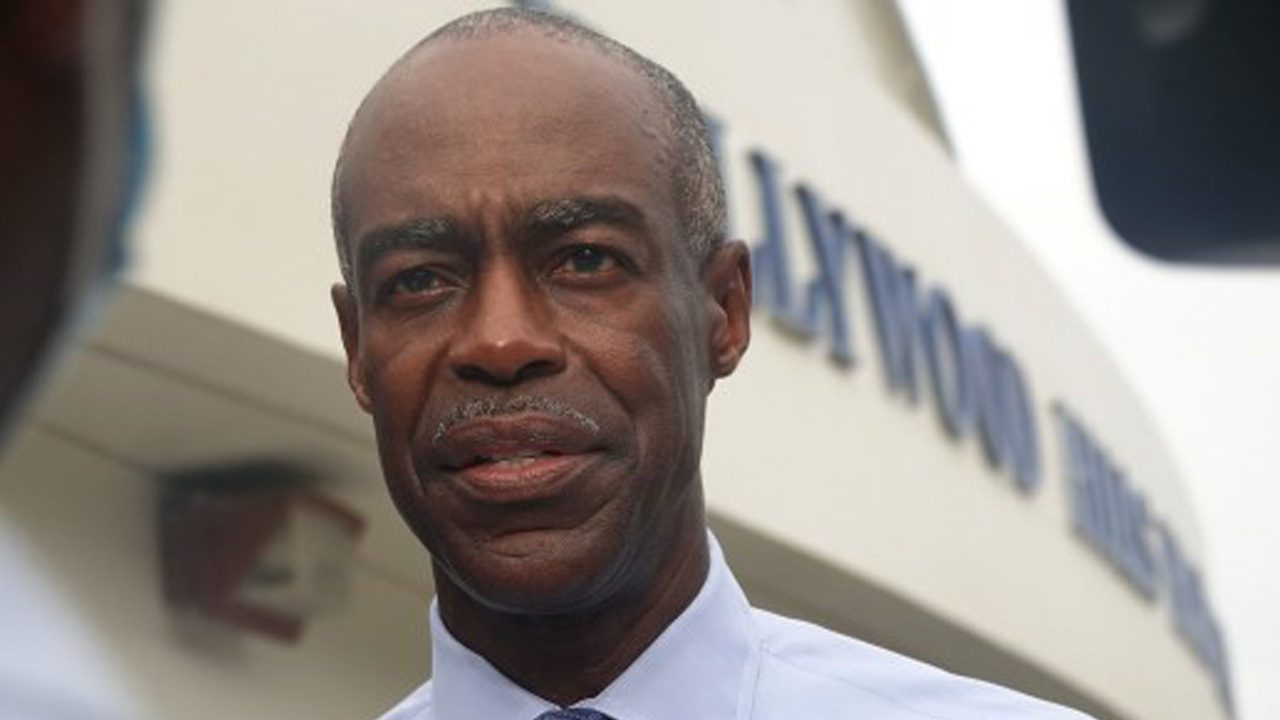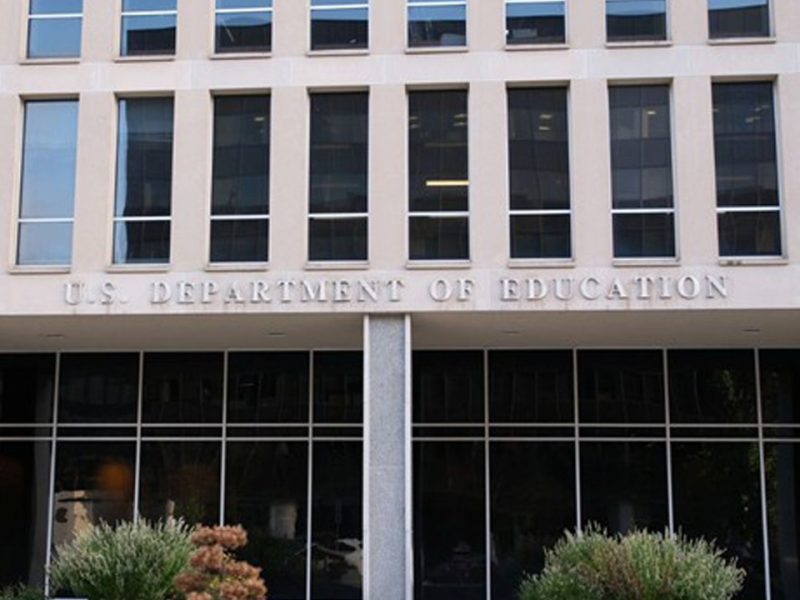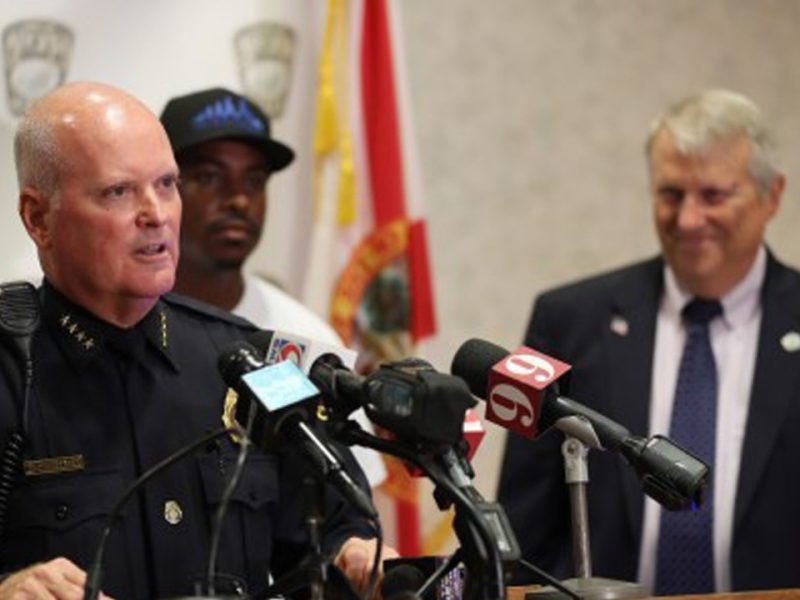
Court allows case against former Broward superintendent Runcie to proceed, overturning judge
Sun Sentinel | By Scott Travis | October 2, 2024
In separate case, judge dismisses case against former schools tech chief
Former Broward Schools Superintendent Robert Runcie could once again be headed to trial on a perjury charge, after an appeals court reversed a judge’s decision to dismiss the charge.
That unanimous ruling by the three-judge panel on the 4th District Court of Appeal will allow the case, which has dragged on for 3 1/2 years, to move forward. Runcie was accused in April 2021 of lying under oath multiple times to the statewide grand jury.
The same statewide grand jury also indicted two other former Broward schools administrators: former Chief Information Officer Tony Hunter and former General Counsel Barbara Myrick. A circuit judge recently dismissed Hunter’s case, although it too could end up being heard by the appellate court.
The issue in Runcie’s appeal was not related to the facts of the case, but jurisdiction.
Runcie spoke before the grand jury on March 31, 2021, and April 1, 2021. In between appearances, he contacted the district’s procurement director, Mary Coker, to get details about a purchasing issue he was being asked about, according to prosecutors. But when asked during his testimony whether he had been prepped, he told the grand jury no multiple times, according to a transcript. The state said that was perjury.
The appellate court rejected an argument by Runcie’s lawyers that a statewide grand jury had no authority to indict him because the alleged crime only happened in one county. State law authorizes statewide grand juries to issue indictments only on crimes that span multiple counties.
Circuit Judge Martin Fein sided with Runcie’s lawyers last year and dismissed the case.
But lawyers with the Office of Statewide Prosecution, which oversees statewide grand juries, appealed, arguing that Runcie lied to a grand jury where people from multiple counties were attending via videoconference.
“In urging affirmance, the superintendent fixates on where his act of speaking falsely occurred: in Broward County,” the ruling states. “On his view, the Statewide Grand Jury could bring this charge only if he physically committed his crime in two or more circuits. But the superintendent ignores the nature of a perjury offense, which involves speaking falsehoods to an audience —and here that audience was drawn from and present in different circuits from the superintendent himself.”
Runcie’s lawyers argued that under normal circumstances, members of a grand jury are all situated in the same room as the witness. Videoconferencing was used in this case due to the COVID-19 pandemic. But the court called that argument “unavailing.”

Shown are former Broward Schools Superintendent Robert Runcie, from left, Barbara Myrick, former general counsel for the district, and Tony Hunter, former chief information officer.
“While this virtually-convened proceeding may have been an atypical event, the fact of the matter is the statewide grand jurors were not physically present with the superintendent in the Broward County Courthouse in this instance,” Judge Jonathan Gerber wrote.
“The statewide grand jurors had convened virtually from the respective three circuits from which each juror had been drawn, meaning that each alleged false communication from the superintendent to the statewide grand jurors occurred simultaneously in all three circuits,” Gerber wrote.
Runcie resigned as Broward’s superintendent in 2021 as a result of the perjury charge. He is now the CEO for Chiefs for Change, a group that supports superintendents and education leaders around the country.
Neither Runcie nor his lawyers could be reached for comment Wednesday. A spokeswoman for the State Attorney General’s Office, which runs the Office of Statewide Prosecution, declined to comment.
The ruling came just two days after a circuit judge, Andrew Siegel, denied a request from statewide prosecutors to reconsider his earlier dismissal of a bribery case involving Hunter, another Broward schools administrator indicted by the grand jury. That dismissal was also based on questions about whether the crime happened in more than one Florida county.
“The statewide Grand Jury, as created by the Legislature, was created solely according to the very wording of the statutes themselves to investigate multi-county crimes and nothing more,” Siegel wrote in a ruling dated Sept. 9, citing a prior state Supreme Court ruling. “If the statewide grand jury finds evidence of a local crime, it cannot indict the defendant and should forward the evidence to the appropriate Grand Jury for that county.”
Hunter could not be reached, despite attempts by phone. His lawyer, Bruce Zimet, declined to comment.
The arrests of Hunter, Runcie and Myrick all stemmed from a statewide grand jury empaneled by Gov. Ron DeSantis in 2019 to investigate school safety issues statewide in the wake of the Parkland tragedy. But the scope evolved to include issues specific to Broward, including technology purchases and the poor execution an $800 million bond for school renovations.
Hunter was indicted in January 2021, nine months after the South Florida Sun Sentinel published an investigation related to the questionable purchase of Recordex interactive smart boards for classroom instruction. The district failed to get competitive bids when it secured $17 million worth of devices in a deal that benefitted Hunter’s friend David Allen, an Atlanta area vendor, according to the Sun Sentinel’s investigation, which was confirmed by a school district audit.
The Sun Sentinel reported that in 2018, Hunter bought a home from Allen in suburban Atlanta at a significant discount. Hunter also went to work for Allen after he left the district in 2019. Allen died in January 2021, a few days before Hunter was indicted.
In April 2021, the grand jury issued two more indictments, charging Runcie with perjury and Myrick with illegally disclosing confidential grand jury information. Those two indictments related to grand jury testimony in the Hunter case.
Hunter was initially charged with bid rigging and unlawful compensation of a public official. But the state agreed in 2022 to drop the bid-rigging charge after Zimet successfully argued Hunter was being charged under a statute that didn’t exist at the time of the alleged crime.
Zimet also argued that the statewide grand jury shouldn’t have indicted him at all, since the alleged crime didn’t take place in multiple jurisdictions.
The state argued it did, since part of the school funding used to purchase the smart boards originated in Tallahassee. Prosecutors also argued a sales representative who communicated with Hunter about the purchase was in Palm Beach County as was a warehouse where the boards were stored.
Siegel disagreed.
“These acts are neither part of an organized criminal activity nor evidence of the charged offense at issue in this case,” he wrote. “Therefore, they cannot form the basis of the related transactions which would give the statewide grand jury jurisdiction to indict” Hunter.
It’s unclear whether the state plans to appeal the Hunter case.
Myrick’s case is still pending in circuit court. The state alleged that Myrick contacted Coker to get information to help Runcie and in the process disclosed confidential grand jury information to one of Runcie’s lawyers.
The judge in the Myrick case is Fein, the same one who dismissed Runcie’s case. He has already issued one ruling favorable to Myrick, denying the state’s request to call Runcie’s lawyer as a witness.
Myrick’s lawyer is making a similar jurisdictional argument to dismiss the case. A hearing on that motion is scheduled for Oct. 8.





